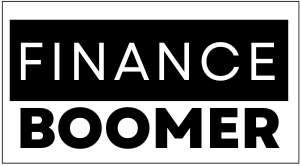Esthetician Insurance – Compare Quotes & Costs [2024]
Esthetician Insurance. People are becoming more and more aware of the advantages of having face procedures done by estheticians. If you operate a business as an esthetician, you are offering others a useful service, but if you are not covered against the claims and lawsuits that occasionally come up in this field, you can be exposing yourself and your company to liability.
You may reduce risks and maintain the financial stability of your organization and yourself by implementing a comprehensive policy.
Services like skin rejuvenation and hair removal are becoming more popular. Thousands of companies that provide esthetician services are always open for business, which means there’s always potential for litigation and lawsuits from unhappy or even wounded customers. It makes sense to safeguard your company with esthetician insurance.
What Is Esthetician Insurance?
A particular kind of professional liability insurance meant only for estheticians is called esthetician insurance. In the event that a client alleges that they were harmed or injured as a result of the esthetician’s services, it offers financial protection for estheticians. This kind of insurance can pay for future settlements or awards as well as the price of a legal defense.
In the event of legal action, esthetician insurance helps safeguard the esthetician’s financial security and their business.
How Much Does Esthetician Insurance Cost?
The average price of a standard $1,000,000/$2,000,000 General Liability Insurance policy for small estheticians ranges from $27 to $39 per month based on location, size, payroll, sales and experience.
What Type Of Insurance Do Estheticians Need?

Business insurance for estheticians typically includes protection for client-brought or company-owned property as well as injury claims from visitors to your studio.
Insurance specifically tailored to protect you against potential hazards as a therapist, business owner, or operator is esthetician insurance.
Property insurance and injury protection are just two of the many alternatives available to you to help lower the dangers to your personal and company life that come with running a business.
Although there are typically no legal requirements for business insurance, your lender (if you financed your company or have a business loan) could demand this coverage in order to approve your loan. This guarantees the lender that, in the event that your company is sued, it won’t go bankrupt.
Esthetician insurance is a vital operating expense for reputable studios who wish to be in business for a long time, regardless of any claims that may be made against them, even if it is not required.
A significant liability lawsuit could completely alter your company’s operations. It can be challenging to fight against this kind of claim, and hiring a lawyer to represent your company in court would cost a significant sum of money. The plaintiff may receive large awards if the lawsuit is successful.
Even if it is determined that you are not responsible for the claim, the expense of hiring an attorney can significantly reduce the revenue of your company.
You should anticipate some degree of liability coverage with basic esthetician insurance coverage. Certain policies allow you to select the protection options that best suit your needs as a business, while others bundle all of the fundamental coverage levels into a single, straightforward policy.
The easiest approach to receive the coverage you require and ensure complete protection is to work with an agent skilled in creating this kind of insurance.
The following may be covered in full or in part by your esthetician insurance policy, either as part of a package or separately from the various available coverage types:
- liability coverage for bodily injuries. This kind of coverage comes in very handy if a student or non-employee gets hurt in your reception area or during a real treatment. Should it be found that your company caused the harm, it can be sued for punitive damages, lost wages, and other medical expenses. The plaintiff is compensated for these expenses by bodily damage responsibility.
- coverage for premises liability. Premises liability insurance is crucial in the event that someone is hurt on your property or if a client, supplier, or other individual makes a claim for property damage against your company. It includes exterior areas as well as the whole property that your firm occupies.
- covering for participant responsibility. This insurance may cover employees, volunteers, and students who sustain injuries while participating in business-related off-site events. This coverage begins, for instance, if you offer services off-site in a spa or in clients’ homes.
- covering for professional liability. This kind of insurance should always be carried by clinicians. This coverage takes over to manage any harm claims in the event that a client has an adverse reaction to a therapy.
- Worker’s compensation. This kind of policy ought to cover every employee. It provides monetary compensation for diseases, accidents, and injuries sustained during work. Medical expenses and lost income could be part of this.
- Product responsibility. This kind of insurance lessens the impact of claims for product negative effects or equipment malfunction. For example, this coverage takes care of your medical expenses and pays the claim fees if a product produces an allergic response; you are not held personally liable.
What Insurance Do I Need When Running A Home-Based Esthetician Business?
Operating a business from home carries a unique set of risks and needs careful planning. Although many companies do not permit it, you might be able to add the business to your homeowner’s insurance.
To properly cover your esthetician business, find out from your agent if you require a separate policy that isn’t related to your homeowner’s insurance.
What Does Esthetician Insurance Cover & Pay For?

Estheticians, like any other professional, can face the risk of lawsuits due to various reasons. Some common reasons why estheticians may be sued include:
Alleged Negligence: An esthetician could face legal action for alleged negligence if they violate a reasonable standard of care or make a mistake that hurts a customer. For instance, if a technician or product used by an esthetician causes a client’s skin to react negatively or sustain damage.
How insurance can assist: Malpractice insurance, sometimes referred to as professional liability insurance, can assist in shielding estheticians against claims of carelessness. Up to the policy’s maximum, it can pay for court costs, attorney fees, and settlements or verdicts that benefit the client.
Bodily Injury: Accidents happen, and if a client sustains bodily injury while receiving an esthetician’s services, the esthetician may be held responsible. For example, if a client slips and falls in the esthetician’s salon or spa, resulting in an injury.
General liability insurance: can provide coverage for bodily injury claims. It can help pay for medical expenses, lost wages, pain and suffering, and other damages resulting from the injury. It can also cover legal defense costs if the esthetician is sued.
Product Liability: Throughout their services, estheticians frequently employ a variety of skincare products. A customer may hold the esthetician accountable for damages if they suffer an unpleasant reaction or injury as a result of a product the esthetician utilized.
How insurance can help: Estheticians can be shielded from claims pertaining to the products they use in their services by purchasing product liability insurance. It can cover costs for court costs, settlements, or awards in the event that a customer claims they were harmed or injured as a result of a product the esthetician used.
Breach of Confidentiality: Estheticians are privy to personal information about their clients, including their medical history, allergies, and other sensitive data. If an esthetician breaches the client’s confidentiality by sharing or using their information without consent, they may face a lawsuit.
How insurance can help: Professional liability insurance can also provide coverage for claims related to breach of confidentiality. It can cover legal expenses and damages if a client alleges that their confidential information was mishandled by the esthetician.
Property Damage: Estheticians may use specialized equipment or tools in their services, and accidents such as equipment malfunction or damage to client property may occur, resulting in a lawsuit.
How insurance can help: General liability insurance can provide coverage for property damage claims. It can help pay for repairs or replacement of damaged property and cover legal defense costs if the esthetician is sued.
In summary, insurance can provide valuable protection for estheticians by covering legal expenses, settlements, or judgments in the event of a lawsuit. It can help estheticians manage the financial risks associated with professional liability, bodily injury, product liability, breach of confidentiality, property damage, and other potential claims. However, it’s important for estheticians to carefully review their insurance policy and consult with an insurance professional to understand the specific coverage details and limits of their insurance policy.







